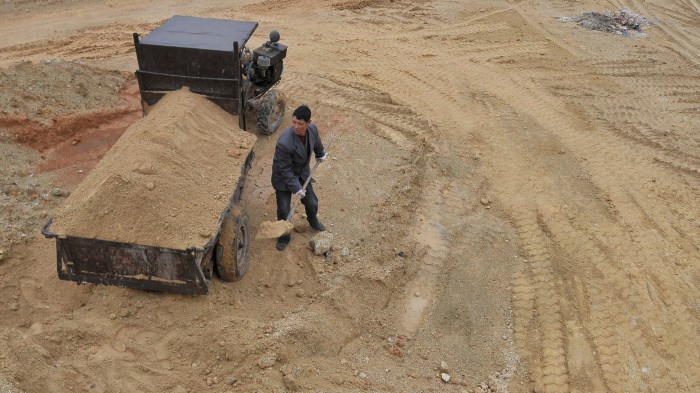Stay informed with free updates
Simply sign up to the Chinese trade myFT Digest — delivered directly to your inbox.
China’s export controls are spilling over into products beyond the rare earths and magnets officially identified by Beijing, threatening broader supply chain disruption and undermining US claims that a new trade deal had resolved delays to shipments.
Beijing, which dominates global supply of critical minerals, began requiring licences for exports of seven rare earth metals and related magnet materials in April in retaliation for Donald Trump’s sweeping tariffs on Chinese imports.
On June 10, the US said it had agreed with China that rare earth shipments should be expedited, reviving a 90-day trade truce on their tariff war reached the previous month in Geneva.
But China’s commerce ministry and customs officials have started to demand additional inspections and third-party chemical testing and analysis of products that are not included in the original control list, according to Chinese companies and western industry executives.
“As long as it contains even a single sensitive word [such as magnet], customs won’t release it — it will trigger an inspection, and once that starts, it can take one or two months,” said a salesperson at a Chinese magnet exporter.
“For example, titanium rods and zirconium tubes are also being held up,” the person said. “The actual controlled item is titanium powder. While our rods and tubes are not on the control list, they still aren’t being cleared.”
A representative of a second Chinese company said it had been “heavily affected” and that logistics companies were “refusing to handle magnets”. The company serves customers across various sectors including magnetic separators, industrial filtration, apparel, food and electronic components.
“Even if the products don’t contain controlled substances . . . they worry that, if customs inspect the shipment, it could affect other goods in the same container and cause delays for the whole shipment,” the person said.
China’s General Administration of Customs and Ministry of Commerce did not respond to questions.
Beijing’s export controls are a significant point of leverage over its trading partners. The country dominates the processing of rare earths and the manufacturing of the magnets in which they are used. Rare earths and their related magnets are widely deployed in electronics, heavy machinery and defence applications such as in fighter jets.
In response to US curbs on tech exports to China, Beijing has over the past two years expanded controls over other strategic materials crucial to chip manufacturing, including gallium, germanium, antimony, graphite and tungsten.
The Financial Times reported earlier this month that the commerce ministry has been asking for production details and confidential lists of customers to secure rare earths and magnets, raising concerns about potential misuse of data and exposure of trade secrets.
According to several industry insiders, the commerce ministry’s export control licence approval process has improved since it was first implemented in April.
Over recent weeks, European companies, industry associations and EU officials have been providing the ministry with lists of the “most urgent applications”. These have mostly been approved by the Chinese side, but European groups said that, under ideal circumstances, more companies and countries would be covered.
“We have seen an improvement of licence approvals recently, but in order to stabilise global supply chains, we need to switch from the current firefighting mode to a regular, stable and predictable approval process,” said Jens Eskelund, president of the EU Chamber of Commerce in China.
According to a survey conducted among western companies in China in June, more than 60 per cent of respondents reported that their export applications had not been approved.
One senior European executive in China who requested anonymity said some companies that had obtained an export licence for rare earths and related magnets had subsequently encountered additional delays, due to the customs authorities’ new chemical testing and analysis requirements.
“It is like a black box: you have no idea who is doing the analysis, how long it takes, where we are in the process. This is very frustrating,” the person said.
Some exporters with licences were choosing to airfreight the approved magnets, rather than ship them. While more expensive, this is believed to lower the chances of being hit with additional testing and analysis requirements.
“Our products are heavy but small, so we can still use express shipping — though that also carries some risk, inspections there are less strict,” another Chinese magnet salesperson said.
Additional reporting by Nian Liu in Beijing


